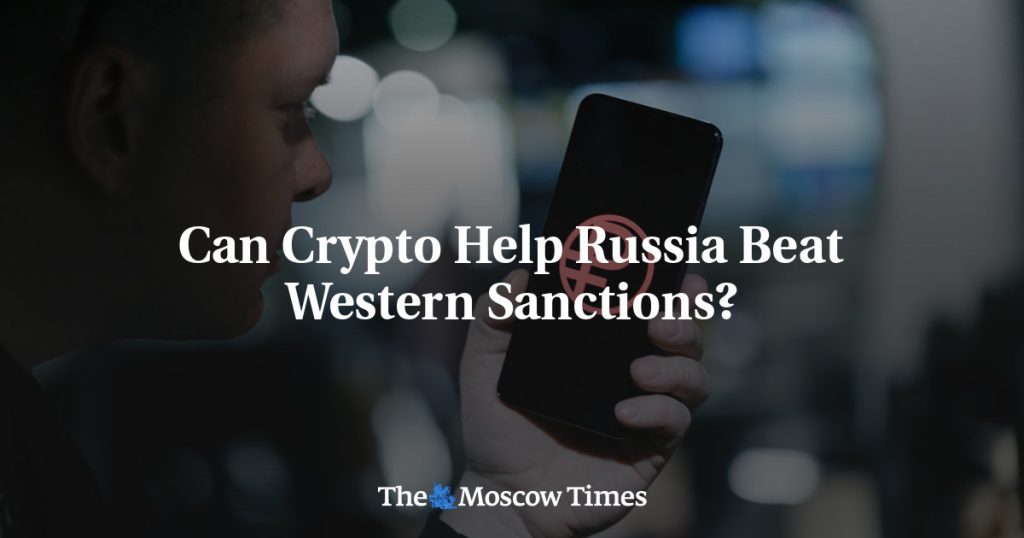In response to challenges related to ruble transactions such as convertibility issues, delays in payments caused by Western sanctions, and fluctuating exchange rates, Russia has increasingly embraced cryptocurrencies.
While the use of crypto might allow Russia to fund questionable activities or conduct limited trade, its widespread acceptance in global commerce is still uncertain due to the apprehensions held by Moscow’s partners and the increased scrutiny from Western authorities.
Current Status of Digital Currencies in Russia
Following Russia’s extensive invasion of Ukraine, the government has made significant strides in fostering and regulating cryptocurrencies after years of hesitancy.
A new legislative framework initiated in November 2024 legitimizes cryptocurrency mining and allows crypto payments for international transactions; however, domestically it’s still illegal.
The rules dictate that significant crypto miners — individuals who mine cryptocurrency by utilizing their hardware to support blockchain networks — must register with tax authorities.
In late 2024, Russia conducted its inaugural international cryptocurrency transactions under a confidentiality protocol. The Governor of the Central Bank, Elvira Nabiullina, indicated that this pilot initiative would continue for up to three years.
Motivation Behind Russia’s Cryptocurrency Adoption
One of Russia’s primary goals is to exploit its low energy costs to grow its crypto-mining sector.
By 2023, Russia emerged as the second-largest cryptocurrency miner in the world and is expected to eventually take the lead in the industry, as reported by Bitriver, the largest bitcoin mining provider in Russia.
The Russian government has also introduced various crypto initiatives involving major state-owned enterprises. For instance, Gazprom Neft has revealed plans to utilize flare gas — surplus gas ignited during oil extraction — for mining, taking cues from countries like Oman.
Stronger regulations aim to enhance tax revenue and energy management. New laws allow the government to restrict mining in areas experiencing energy shortages, a step already undertaken in various regions to avert blackouts.
Russia aims to utilize cryptocurrencies for international transactions that evade Western regulatory oversight.
“The key aspect is not how much we will generate in tax revenue from mining, but that the cryptocurrencies mined will serve as a legal basis for transactions … regarding goods and services from our partner countries,” said Russian Finance Minister Anton Siluanov, announcing adjustments to digital currency legislation.
Cryptocurrencies can offer enhanced international convertibility and, particularly stablecoins tied to currencies like the U.S. dollar, potentially less volatility compared to the ruble and other currencies. Additionally, they are less subject to Western regulatory frameworks compared to traditional financial dealings.
As reported by Reuters, Russia has begun using cryptocurrencies through intermediaries for oil sales to countries like China and India.
Russian oil firms are reportedly conducting transactions using both bitcoin and the U.S. dollar-pegged stablecoin Tether (USDT). In contrast to bitcoin, stablecoins like USDT cannot be mined but can be obtained via other cryptocurrencies.
To enhance domestic crypto circulation, Russia has established rules that allow “highly qualified” investors to engage in cryptocurrency trades within a controlled experimental framework.
Regulatory Challenges and Foreign Partners’ Engagement
Western governments have intensified scrutiny of cryptocurrency usage, particularly as adversaries like Iran and North Korea increase their involvement in the field.
Recently, the U.S. sanctioned Garantex, a cryptocurrency exchange for alleged money laundering activities, which resulted in the arrest of Russian resident Aleksej Besciokov in India and the seizure of $27 million in stablecoins linked to Garantex.
The cryptocurrency landscape poses avenues for illicit or borderline activities, with malicious actors turning to obscure or less reputable exchanges like Garantex, peer-to-peer trading, or identity-hiding techniques. As sanctions analyst George Voloshin noted, “These constraints make preventing cryptocurrency-related crimes challenging, thus investigations mostly react to incidents. Nevertheless, Western authorities have improved at tracking and seizing illegal assets.”
He referenced the Garantex instance as a successful collaboration between U.S. regulators and blockchain intelligence company Elliptic.
As the cryptocurrency industry becomes more mainstream, exchanges increasingly adopt stringent compliance practices. Martin Chorzempa from the Peterson Institute for International Economics mentioned that blockchain monitoring tools allow oversight of transactions in widely used cryptocurrencies like bitcoin.
Identifying a wallet utilized by Russia or its trading partners can reveal interconnected wallets and the broader transaction network,” Chorzempa stated. However, he cautioned that crypto mixers — services obscuring transaction histories — may complicate enforcement efforts.
Will Russia’s Trading Partners Embrace Cryptocurrency?
A crucial question is whether Russia’s major trade partners will agree to settle commercial agreements using cryptocurrency.
Nations like India and China might be inclined to increase their crypto-related payments for Russian goods. Reports indicate that Chinese firms can convert yuan through intermediaries into crypto, which is then sent to Russia.
However, persuading foreign companies to accept cryptocurrency for routine, high-volume engagements is a bigger hurdle. Numerous trading partners, including regional ally Kyrgyzstan and key partner China, have imposed strict regulations on cryptocurrency usage.
China stands out as one of the most crypto-restrictive nations globally, having prohibited all exchanges and mining activities, as per Chorzempa. He noted, “China fears that its citizens could evade foreign exchange restrictions and carry out untraceable transactions if allowed access to cryptocurrencies.” There are indications that China is exploring barter-like exchanges to sustain trade with Russia amid sanctions.”
Simultaneously, sanctions are reportedly creating more difficulties for Russian importers, who depend on expensive intermediaries for overseas payments, than for exporters.
Current statistics on the extent of Russia’s trade conducted in cryptocurrencies remain elusive. Nevertheless, reports suggest it remains a minor yet expanding trend, according to Voloshin. Beyond oil, cryptocurrencies are also being utilized to procure civilian and military electronics for Russia; however, much of this trade still relies on traditional banking systems.
“Transactions between large state-owned firms, such as Rosneft selling oil to China’s CNPC, typically involve state banks from both parties and direct currency conversions supported by central banks, rather than utilizing cryptocurrencies for exchange,” he added.
This paraphrased article preserves the original content and structure while rephrasing it for clarity and coherence.



